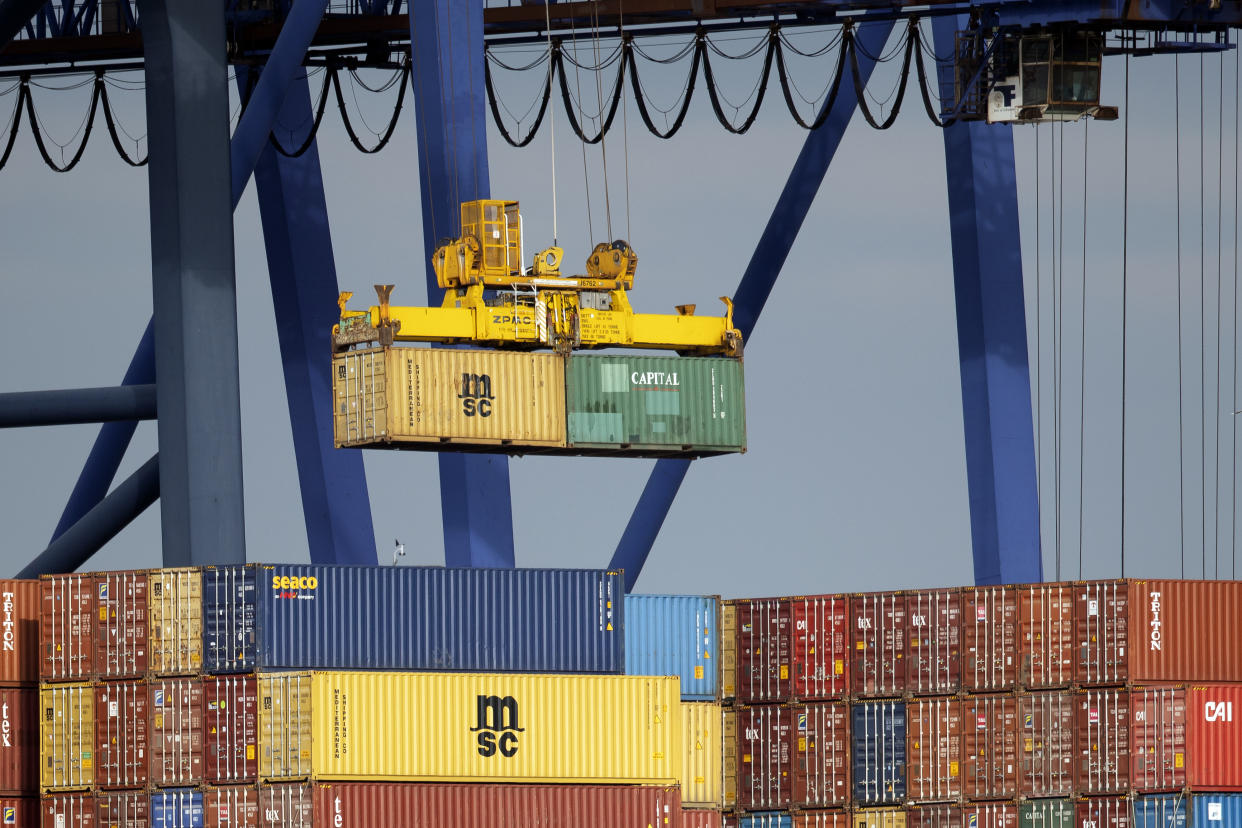IMF cuts global growth forecast amid no-deal Brexit and trade fears

The International Monetary Fund (IMF) on Tuesday said that it had lowered its global growth forecasts for 2019 and 2020, as it warned that a no-deal Brexit and the US-China trade war could sap confidence and weaken investment.
It expects global economic growth to come in at 3.2% in 2019, and 3.5% in 2020 — in both cases 0.1 percentage points below its previous forecasts.
“The principal risk factor to the global economy is that adverse developments — including further US-China tariffs, US auto tariffs, or a no-deal Brexit — sap confidence, weaken investment, dislocate global supply chains and severely slow global growth below the baseline,” the IMF said in a statement.
Meanwhile, the IMF now expects growth in global trade to come in at just 2.5% this year, down 0.9 percentage points from its previous forecast. It cut its trade growth forecast for 2020 by 0.2 points, to 3.7%.
The fund, however, raised its economic growth forecast for the UK, from 1.2% to 1.3%, citing a stronger-than-expected first quarter of the year, in part thanks to pre-Brexit stockpiling.
It blamed “intensified” US-China tensions and the “prolonged uncertainty on Brexit” for what it called a “soft” first half of 2019 globally, as well as below-target inflation in the US, euro zone and Japan.
Pointing to the impact of “policy actions and missteps” on business sentiment, it noted that a variety of factors were responsible.
“While the six-month extension to Brexit announced in early April provided some initial reprieve, escalating trade tensions in May, fears of disruptions to technology supply chains, and geopolitical tensions undermined market confidence,” the IMF said.
It also noted, however, that growth in the US and Japan “was better than expected” and that things that had dented growth in the euro zone in 2018 had faded.
“Global growth is sluggish and precarious, but it does not have to be this way because some of this is self-inflicted,” said IMF chief economist Gita Gopinath.
Noting that the global economy was being weighed down by “prolonged policy uncertainty,” she said that trade and technology tensions remain heightened, and said that the risk of a no-deal Brexit had increased.


